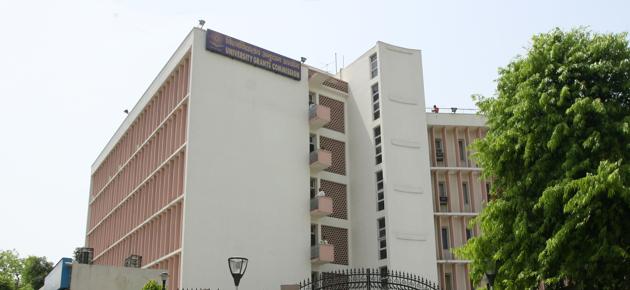UGC grants autonomy to 3 Mumbai colleges
While Thakur College of Engineering (TCE) in Kandivli was granted autonomy last month, Thakur College of Science and Commerce (TCSC) in Kandivli and DJ Sanghvi College of Engineering (DJSCE) in Vile Parle were given autonomy last week
The University Grants Commission (UGC) recently granted academic autonomy to three colleges in the city, taking the tally of autonomous institutes under the University of Mumbai (MU) to 30.

While Thakur College of Engineering (TCE) in Kandivli was granted autonomy last month, Thakur College of Science and Commerce (TCSC) in Kandivli and DJ Sanghvi College of Engineering (DJSCE) in Vile Parle were given autonomy last week.
The city has four other autonomous engineering institutes — Veermata Jijabai Technological Institute in Matunga; Somaiya College of Engineering in Vidyavihar; Sardar Patel Institute of Technology; and Sardar Patel College of Engineering, Andheri.
Academic autonomy allows colleges to frame their own curriculum, conduct examinations and introduce new courses, even though their admissions and fee structures will be determined by the universities they come under.
Officials from the three colleges said they plan to make gradual changes to their curriculum and examination as students progress from their first to final years.
"To begin with, we will make slight changes to MU curriculum, which doesn't have much of industry exposure. But for now, these changes will be applicable only for the first year of engineering, which provides a foundation for all courses. Second to fourth-year students will continue according to the existing syllabus," said Hari Vasudevan, principal, DJSCE
Chaitali Chakraborty, principal, TCSC, said the college will add certified skill development courses and internships in its existing academic programmes. "We want our students to be prepared for the job market as soon as they finish their course," she said.
Chakraborty said TCSC’s management is considering to replace MU's 75:25 examination pattern (75% marks for end semester examination, 25% marks for internal assessment) with a 60:40 pattern, which will include two midsemester tests.
At TCE, the college management is planning to provide extra credits for students taking up extracurricular and co-curricular activities as well as five or six specialised online courses. The college also wants to replace MU’s curriculum with All India Council for Technical Education’s (AICTE) proposed model curriculum, that includes a mandatory 600-hour internship during a four-year engineering course.
"We have been already been doing many of these activities, but we can now ensure student participation as their credits will depend on these activities. We want to make education holistic, instead of merely focussing on academics," said Braj Mishra, principal, TCE.
Stay updated with all the Breaking News and Latest News from Mumbai. Click here for comprehensive coverage of top Cities including Bengaluru, Delhi, Hyderabad, and more across India along with Stay informed on the latest happenings in World News.
Stay updated with all the Breaking News and Latest News from Mumbai. Click here for comprehensive coverage of top Cities including Bengaluru, Delhi, Hyderabad, and more across India along with Stay informed on the latest happenings in World News.






